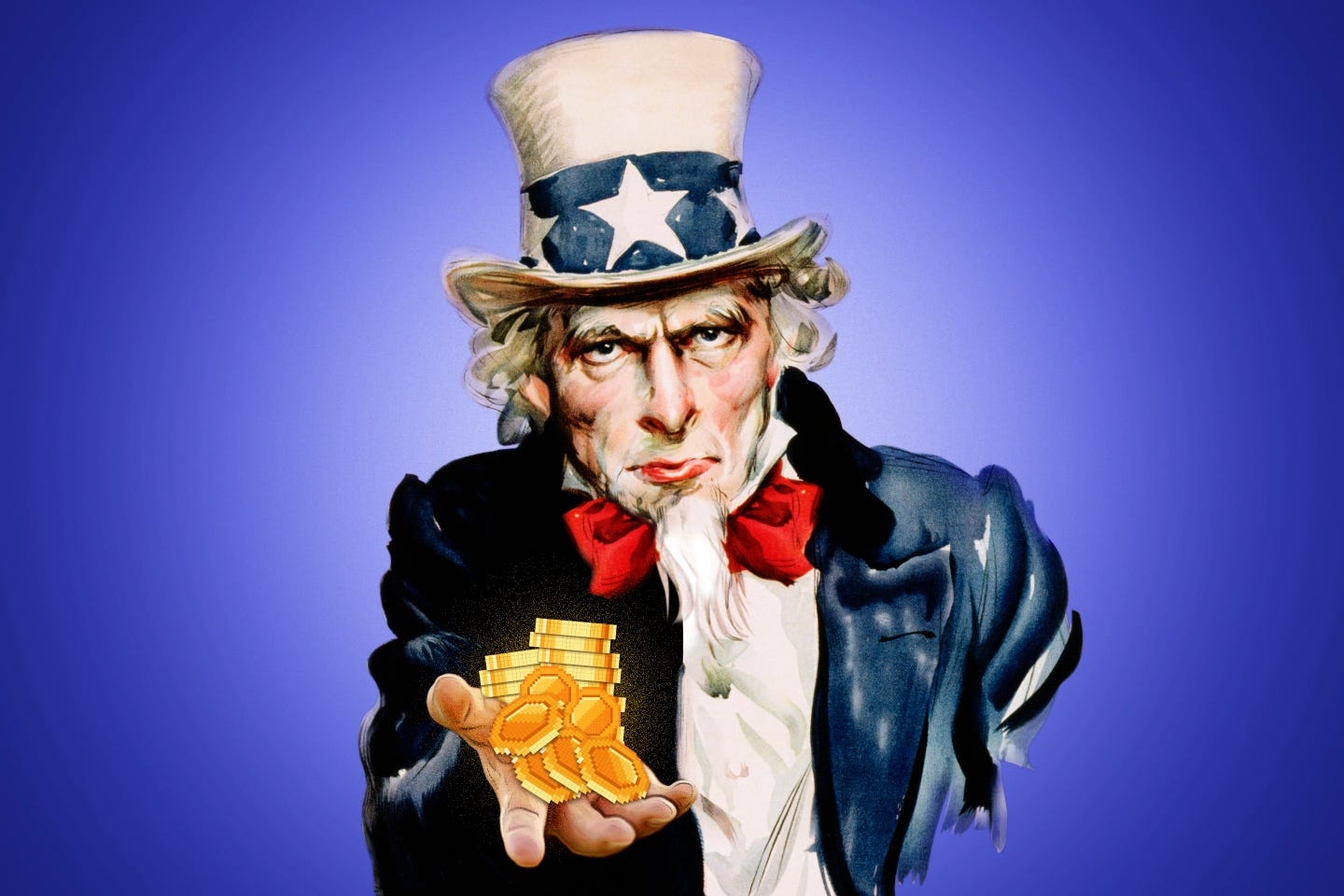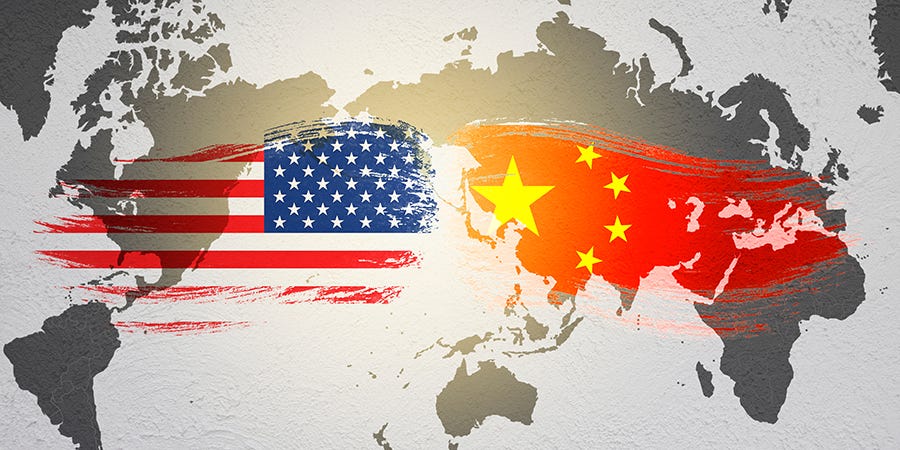The Future of Digital Currency
Battle Between Stablecoins and CBDCs
Hey there, new subscribers!
Welcome to the coolest community in the world of AI, Crypto, Data and more - Team Inspired Analyst! We're thrilled to have you join us as we dive into the latest developments.
In this edition, we'll be discussing the battle between Satoshi and Uncle Sam for digital supremacy, as well as Hong Kong's proposal that could shake up the crypto trading game.
So buckle up and get ready for an exciting ride!
SATOSHI VS. UNCLE SAM
The Securities and Exchange Commission (SEC) threw a spanner in the works by charging Paxos for issuing unregistered security in its BUSD stablecoin.
Yikes!
This allegation has caused shockwaves across the industry, as BUSD is one of the most popular stablecoins in the market.
But wait, what are stablecoins, you ask?
Well, they're cryptocurrencies pegged to the value of a real-world asset, like the U.S. dollar.
They're pretty disruptive and have been causing a stir in the digital finance world. However, the SEC has been cracking down on stablecoins and is rumoured to be planning to regulate them as securities.
This move could hamper not only legitimate innovation but also global dollar adoption.
What this means is that stablecoins could potentially strengthen the dominance of the U.S. financial system for a long time by making the use of the U.S. dollar even more widespread and popular.
If done right, stablecoins have the potential to replace national currencies in countries with high inflation rates.
For example, citizens of countries like Zimbabwe, Turkey, and Argentina can seek refuge by converting their native currencies into dollar-backed stablecoins.
Latin America is already leading the charge, with over a third of Latin Americans have made a purchase with private stablecoins.
Talk about fast adoption!
Stablecoins are acting as a hedge against inflation, which is something that Bitcoin was supposed to do.
And if stablecoin adoption continues at its current pace, it could be a trillion-dollar industry by the end of the decade, making the U.S. the king of digital currency.
But wait, there's more!
To Compete Against China?
The SEC's crackdown on stablecoins is taking place at a time when a smaller percentage of global energy transactions is taking place in dollars, and the digital yuan is on the rise.
China already has a competitive advantage over the U.S. in terms of digital currency, having rolled out its own CBDC called the e-CNY in 2021.
An American CBDC would present a massive invasion of privacy and would concentrate unprecedented power in the hands of central bankers.
So, stablecoins remain the best option for the U.S. to compete against the digital yuan.
But, and it's a big but,
The SEC must regulate stablecoins correctly to protect consumers and stimulate dollarization.
In conclusion, stablecoins are not a problem; they're an opportunity to empower consumers, expand American hard power, and plant the U.S. flag in the emerging digital economy.
With the right regulation, we can seize this opportunity to counterbalance the digital yuan, expand dollarization, and secure U.S. dollar supremacy for the next decade.
So, SEC, do your thing, but do it right!
Get Ready to Say 'Ni Hao' to Crypto: Hong Kong's New Proposal
Hold on to your hats, crypto enthusiasts!
Hong Kong just dropped a massive proposal that could shake up the crypto trading game.
Here are the highlights of the 361-page document, so you can stay in the know without spending your whole day reading it:
First up, any person or business that provides crypto-related services will need a special license from the Security and Futures Commission (SFC).
Currently, only two exchanges are licensed to trade in Hong Kong.
But the most exciting proposal is that retail investors could soon be allowed to trade crypto.
The SFC is currently seeking public comments on whether they should allow it.
Who knows?
Maybe you could be the next crypto-trading millionaire!
If Hong Kong does allow retail investors to trade crypto, it could be a game-changer for adoption in mainland China.
China's relationship with crypto has been...complicated, to say the least.
But Hong Kong is a special administrative region with separate governing and economic systems from mainland China, so it could pave the way for broader crypto adoption.
But wait, there's more!
There's a catch to the new proposal: investors would only be able to trade "large-cap tokens."
In other words, the crypto exchanges would only be allowed to list tokens that are "included in at least two 'acceptable indices' issued by at least two independent index providers."
So, sorry Dogecoin fans, you might have to sit this one out.
The new rules will take effect on June 1st, so get ready to mark your calendars. Will Hong Kong's proposal have any impact on China's stance on crypto?
Who knows, but it's definitely worth keeping an eye on.
In the meantime, let's just hope that the proposal doesn't get lost in the sea of paperwork.
Lights, Camera, Action: Our Latest YouTube Upload
Unleash Your Trading Potential: Join us in our latest YouTube video where we reveal the secrets of successful spot trading.
That's it for this edition of the Team Inspired Analyst newsletter.
We hope you enjoyed reading it as much as we enjoyed writing it.
Remember, the world is always evolving, and we'll be here to bring you the latest and greatest developments.
Until then,
Hafsa and Zain from Team Inspired Analyst - signing off!








